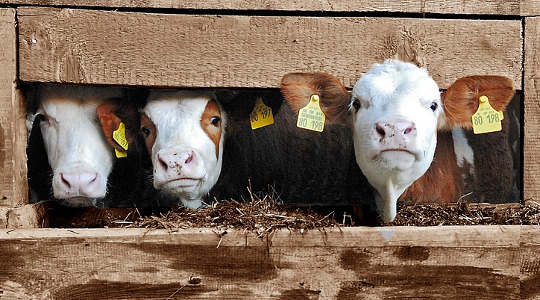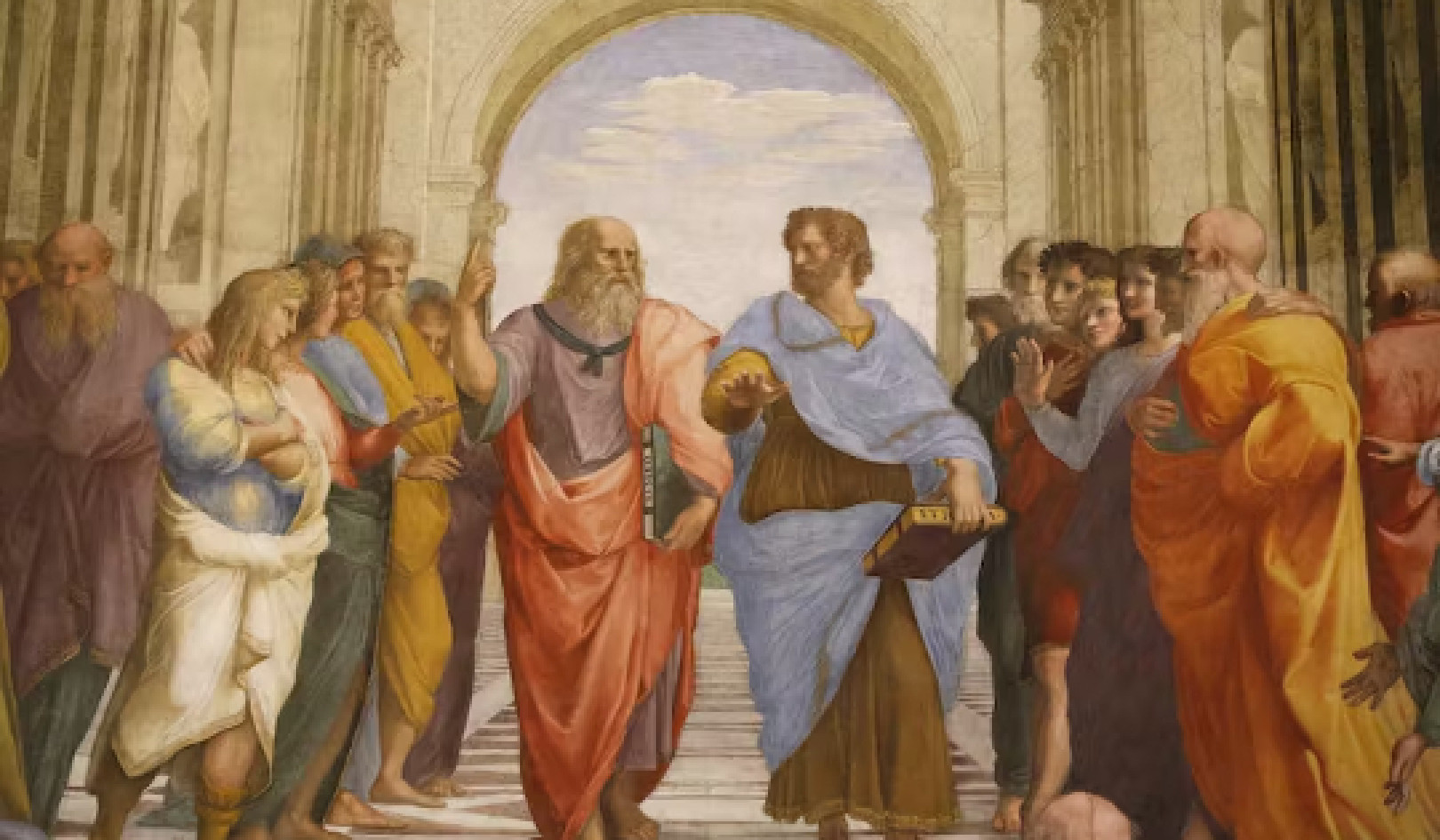
A friend of mine--a much-loved teacher of Bhakti Yoga, the yoga of devotion--told me about the day he became vegetarian. In 1970 at age twenty, Richard Slavin traveled overland from Amsterdam to India seeking God. He arrived in Delhi exhausted, starving and broke. Within hours, hucksters had plied him with intoxicants, tied him up with a boa constrictor, and tricked him into eating fiery-hot peppers.
As evening approached, the boa came off and the effects of the drugs and peppers subsided. Richard was starving and wondered what to do. An Indian gentleman approached him, curious to see a young Westerner on his own in India, and invited Richard to dine with him at an outdoor restaurant.
Their table was just inches from the road. The man ordered two meals. As they sat waiting, a white cow strolled by nuzzling her calf. The two animals lay down just next to Richard’s chair. He had never been so close to a cow and marveled at her graceful movements and big brown eyes. He was struck by how closely the exchange of love between the mother cow and her calf resembled that of a human mother and children.
Consciousness Is Active In All Creatures Big And Small
A waiter arrived, slapped down two plates, and Richard delved into the food. Halfway through the meal his host pointed to the plate and said, “This thing that looks like wheat bread is called roti. These vegetables are called subji. This here is chaval, or rice.” Then he pointed to some small chunks on the rice. “And this is meat.”
Just then the cow leaned over and licked Richard’s leg. Richard stared first at the meat, then at the cow, and realized with horror that all his life he had been an unwitting participant in a cruel and heartless practice. Thinking of the millions of animals killed every day and ground into food, he dissolved in tears. He could barely speak.
“Thank you for everything,” he told his host and pushed back his chair. “Please excuse me, but I’m feeling ill.” On his way out, he patted the cow, and the cow reciprocated by licking his hand. Today Richard is known by his Bhakti name, Radhanath Swami.
“Before that moment,” he told me, “I never made the connection between what I ate and my search for God. I just never saw it.” His journey to God had begun long before, but realizing that love comes in all sorts of bodies helped define where he was going. Becoming vegetarian had less to do with health than realizing consciousness is active in all creatures big and small.
Our Generation’s Greatest Failure: Undervaluing Relationships
Someday, looking back from whatever post-apocalyptic future humanity is preparing, people may conclude that our generation’s greatest failure was undervaluing relationships with life in its many breathtaking forms. What is exploitation of nature if not denial of our relationship with the earth? What is animal slaughter if not a failure to honor our relationship with other species?
To be sure, there are relative merits to vegetarianism on its own terms: improved diet, lower cholesterol, and so on. But helpful as those merits may be, meat is the narrow wedge of a much larger dilemma, namely our neglect of consciousness as the foundation of all life. If we objectify animals as merely biological phenomena, why should we not do the same with women, gays, Muslims, Jews, or any group from which we choose to differentiate ourselves?
A Respect For Life As A Spark Of Divinity
Yoga poses a very challenging question: How empirically necessary is aggression? Biological history would have us believe it is very necessary, and we have only to consult any of the hard sciences for supportive data. If we insist on biological history as a starting-point for identity, then there is little hope of ever reversing slaughter of any kind.
If we humans are genetically-programmed to be aggressive, then Endangered Species Acts, human rights conventions, or other safeguards will never achieve a harmonious future for humanity. We will never escape our genetic imperative to destroy life.
Fortunately, the essence of life exists outside biological history. The atma or core self has nothing to prove to the world through aggression. Uncovering this transcendent self is the purpose of all Yoga, which advocates not vegetarianism but a respect for life as a spark of Divinity. Bhakti Yogis celebrate their union with Divinity, and vegetarian food plays a delightful part in that celebration.
In a world doing its best to prove every day that aggression is our natural tendency, the yogic alternative may be a philosophy worth considering.
About the Author
 Filmmaker/biographer Joshua M. Greene (Here Comes the Sun: The Spiritual and Musical Journey of George Harrison, 2007) spent 13 years as a monk in Hindu ashrams of India and Europe. He later served on the United Nations Peace Summit of Religious and Spiritual Leaders, as a professor at Hofstra University, and is now the resident Bhakti Yoga instructor at Jivamukti Yoga School in New York City. His latest book is Swami in a Strange Land: How Krishna Came to the West. See more on his website www.atma.org
Filmmaker/biographer Joshua M. Greene (Here Comes the Sun: The Spiritual and Musical Journey of George Harrison, 2007) spent 13 years as a monk in Hindu ashrams of India and Europe. He later served on the United Nations Peace Summit of Religious and Spiritual Leaders, as a professor at Hofstra University, and is now the resident Bhakti Yoga instructor at Jivamukti Yoga School in New York City. His latest book is Swami in a Strange Land: How Krishna Came to the West. See more on his website www.atma.org
Books by this Author
at InnerSelf Market and Amazon
























